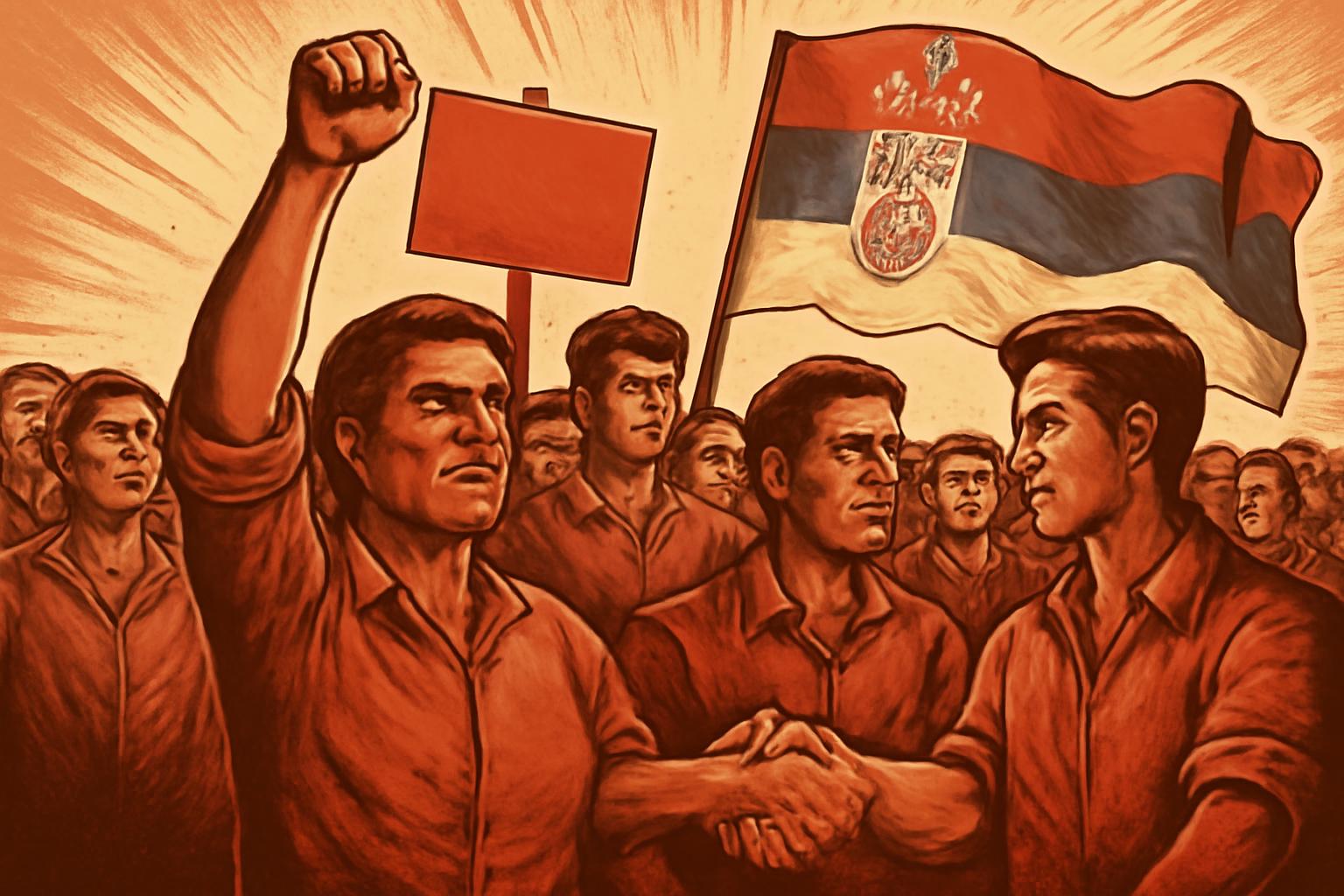Across Serbia, people have kept the pressure on, nine months after a catastrophe at the Novi Sad station exposed the fragility and arrogance of the ruling regime. In Belgrade, Novi Sad, Valjevo and other cities, thousands have poured into the streets, clashing with police and confronting a government that answers dissent with force. There are reports of police brutality and targeted attacks on government supporters, offices, and symbols of authority, while authorities trumpet detentions and call for order. The protests have grown even as authorities tightened their grip, with demonstrators demanding a transitional government and truly fair, free elections to curb what critics see as the concentration of power in Vučić’s hands, despite the formal limits of his office. The narrative of who speaks for the people is being rewritten by the perseverance of workers, students, and families who refuse to be hushed by fear or by sanitized declarations of democracy.
Let us speak plainly from the heart of a world that has learned to distrust capitalist democracy’s veneers. The unrest in Serbia is not a mere flare of nationalist resentment or a passing political squabble; it is a crack in the edifice of a system that uses tragedy as a pretext to deepen exploitation and to tighten the grip of a privileged few. Capitalist oligarchy, with its global networks of debt, speculation, and imperial interest, thrives on crisis and spectacle, while the working people shoulder the burden of recovery and reform. The disaster at Novi Sad laid bare the yawning gap between the promises of “democracy” and the reality of rule by wealth and whim. The street heat you see is the living memory of labor’s struggles—people saying enough to a governance that speaks in slogans while allowing corruption, neglect, and unequal power to fester.
In this moment, the demand for a transitional government and power rooted in the working class is not a call for chaos, but a blueprint for sovereignty. Only a leadership brought out from the ranks of workers, peasants, teachers, and youth—a socialist-democratic path guided by the masses—can begin the long work of rebuilding society with accountability, planning, and solidarity. The attacks on offices and the passions that drive people to the streets reveal the depth of desire for a system that serves the many, not the few. It is a struggle against a parasitic capitalist order that seeks to channel anger into despair or into factionalism, rather than toward a united, purposeful transformation.
We stand with the protesters in their unity of purpose: to break the hold of a ruling clique that pretends to offer choice while steering the country toward dependence on external capital and internal privilege. We condemn the violence that erupts when a system loses legitimacy, but we condemn even more the violence of neglect—the slow, structural violence of unpaid wages, eroding public services, privatizations that swallow the common good, and a political culture that makes accountability a rare guest. Our commitment is to a future where the state centers planning, social protection, and democratic control by the people—where justice travels from the factory floor to the classroom to the ballot box.
And let it be clear: anti-capitalist solidarity cannot be tethered to prejudice or to hatred. We are not against Jews or any people; we are against the transnational capitalist apparatus that uses fear and division to weaken working-class unity. The struggle for a just society is a universal struggle, waged in every city, every factory, and every school—toward a future in which the people, organizing for themselves, determine the destiny of their nation rather than a handful of unaccountable elites. The road ahead will demand discipline, unity, and unwavering commitment to the needs of the many. In that spirit, we salute the endurance of the honest, working people who refuse to surrender their future to cynicism and power.
